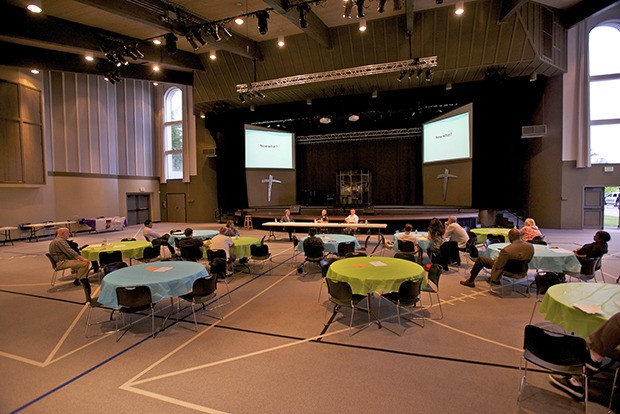A discussion about drugs and alcohol can be a difficult discussion between parents and their children.
“These are issues that are in schools and in society that we really have to talk about,” said Erick Munson, who had to deal with the subject firsthand when he found his 12-year-old daughter using marijuana and alcohol.
“When she did I was totally clueless on what to do.”
Munson joined Kent Police Officer Howard Engledow and consultant Jerry Blackburn for Drugs and Alcohol 101, a city of Kent seminar that provided parents with help on how to talk to their children about drugs and alcohol. The seminar was staged at Faith Baptist Church on May 22. Only 18 were in attendance.
The panel helped parents identify the top four drugs teens use: cigarettes, alcohol, marijuana and prescription drugs.
According to a survey, one in four high school seniors smoke marijuana, and one in three drink.
“You can definitely tell your friends that everyone is not doing it,” Engledow said. “The vast majority are not.”
The speakers also explained how drugs were linked to violent and sexual crime, and that drunken driving caused the most deaths among teens each year.
Blackburn is a teacher at Bellevue College’s addiction studies program and a community educator and consultant with Lakeside-Milam Recovery Centers. He discussed some of the physiological effects of smoking marijuana, including its impact on time awareness and tracking on the central nervous system. He also emphasized the way the drug can affect mental development in teenagers as opposed to adults.
Understanding the effects and dangers of drug use wouldn’t be helpful without also helping parents identify drug use patterns, so they can approach their children, the panel said.
“The key thing is change, obvious things that you know as a parent are not right, or aren’t normal behaviors,” Munson said.
They include a loss of appetite, slow walk and red eyes or an inability to sleep. A major indicator, Munson said, was a change in social circles and direct avoidances of previous friends, as well as secrecy and paranoia.
If parents find their child using, Blackburn suggests finding a treatment facility for kids to help work out their drug or alcohol problem.
“It’s the only health care people try to avoid,” he said.
Talk to us
Please share your story tips by emailing editor@kentreporter.com.
To share your opinion for publication, submit a letter through our website https://www.kentreporter.com/submit-letter/. Include your name, address and daytime phone number. (We’ll only publish your name and hometown.) Please keep letters to 300 words or less.

